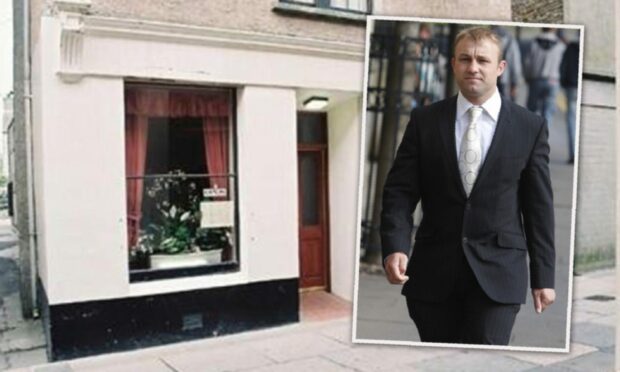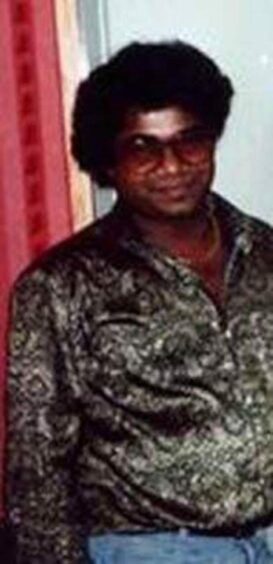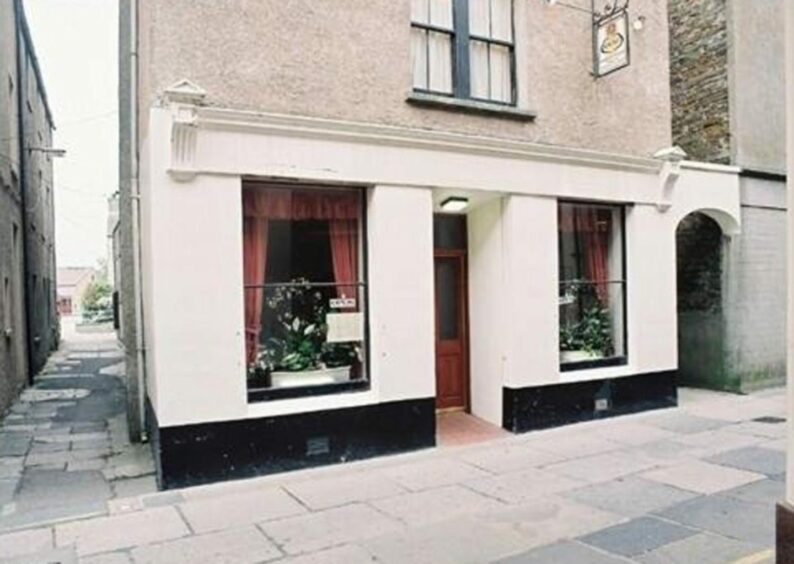Campaigners fighting to clear the name of a former soldier convicted of killing an Orkney waiter have lodged an official complaint against the police.
Michael Ross shot dead Bangladeshi waiter Shamsuddin Mahmood in a restaurant in Kirkwall in 1994.
Ross was just 15 at the time. He was eventually convicted in 2008 after police received an anonymous letter identifying him as the gunman.
He was given a minimum sentence of 25 years.
But many have doubted his guilt, with a group of loyal supporters repeatedly fighting to have his conviction quashed.
And now they have presented a 360-page dossier of alleged failings by Northern Constabulary – which became part of Police Scotland in 2013 – to the force’s professional standards department.
Were police ‘out of their depth?’
Officers are accused of failing to adequately investigate the life and acquaintances of the victim, of manipulating evidence and witnesses, failing to investigate a plausible lead and of misleading and misdirecting the media during their investigation.
One of the claims surrounds police handling of evidence provided by William Grant, who came forward in 2006, when police had already identified Ross as a prime suspect.
They claimed to have seen the schoolboy, yards from the murder scene, holding a pistol and wearing a balaclava.
A letter which accompanies the complaint states: “We allege there to have been confirmation bias, media manipulation, gross incompetence and, laterally, corruption in the police investigation, resulting in the wrongful conviction of Michael Alexander Ross.
“We have compiled a detailed case for complaint that shows the police investigation into Mr Mahmood’s murder to be incompetent and biased from the beginning, led by officers lacking in experience and diversity who were under-resourced, completely out of their depth and unable to conduct the standard of investigation required in this complex and highly sensitive case.”
Orkney’s first murder in 26 years
Despite interviewing more than 2,000 individuals and launching a UK-wide publicity campaign in what was Orkney’s first murder for 26 years, police drew a blank until 2006 when Mr Grant came forward.
In an anonymous letter, handed into Kirkwall police station, he claimed to have seen Ross wearing a balaclava and holding a pistol in public toilets yards from the restaurant before the murder.
Ross, who was 15 at the time, was several years younger and up to five inches shorter than the description of the killer (based on witnesses) that was issued by the police.
An appeal to overturn the conviction failed and back in 2014, the Scottish Criminal Cases Review Commission refused to refer the case to a fresh appeal, ruling that it had not been a miscarriage of justice.
The complaint covers Northern Constabulary’s investigation into the killing between 1994 and 2008, as well as a cold case review from 2006-2008.
Detailing what they describe as the most serious allegations, campaigners allege that officers infringed Ross’ human rights by predetermining his guilt, failing to investigate plausible alternative suspects, including manipulating evidence to fit their theory.
Failed to follow up on ‘red flag’ information
They claim police had credible evidence suggesting Mr Mahmood had issues in his personal life and may have been the victim of a contract killing, claiming that they failed to follow up on “red flag” information.
They also accuse senior officers of feeding a false narrative to the media and misleading journalists and the community of Orkney.
Campaigners also claim to have new evidence suggesting Mr Grant may have been coerced into providing a false account of witnessing Ross on the night of Mr Mahmood’s murder.
Ross’ father Edmund, a former police constable in Orkney, was convicted of perverting the course of justice and jailed for four years in May 1997, in connection with bullets he had voluntarily submitted to the investigation.
In 2011, he complained to Northern Constabulary that Mr Grant had been pressured into providing a false account, with his complaint being investigated but was not upheld.
In their letter to police, campaigners said: “We can provide further evidence to demonstrate key facts that suggest the witness Grant was, indeed, coerced into providing false witness statements.
“The case against Michael Ross was presented to [the Procurator] Fiscal in 1995 and, we believe, again in 2001 and sufficiency of evidence was not reached. The Crown relied upon the testimony of William Grant to reach the threshold for sufficiency of evidence to charge Michael Ross with murder.
“After using William Grant to escalate the case to court, while aware of his shortcomings, the Crown then attempted to drop him as a trial witness, Grant then only testifying at the insistence of the defence.
“We believe that there is overwhelming evidence that the testimony of William Grant was secured to close the case at all costs and this must be investigated thoroughly and without delay.
‘Miscarriage of justice’
“The resulting miscarriage of justice has caused immeasurable damage and its remedy is long overdue, with Michael Ross having served almost 14 years of a 25-year minimum term for murder; a conviction we believe to have been possible because of malfeasance in public office.”
A police spokesman added: “We have received a complaint and it is currently being assessed.”
In 2018, it was reported that human rights lawyer Aamer Anwar had taken on Ross’ case after campaigners from the Justice for Michael Ross (J4MR) group raised over £20,000 in an online crowdfunding campaign.



Conversation